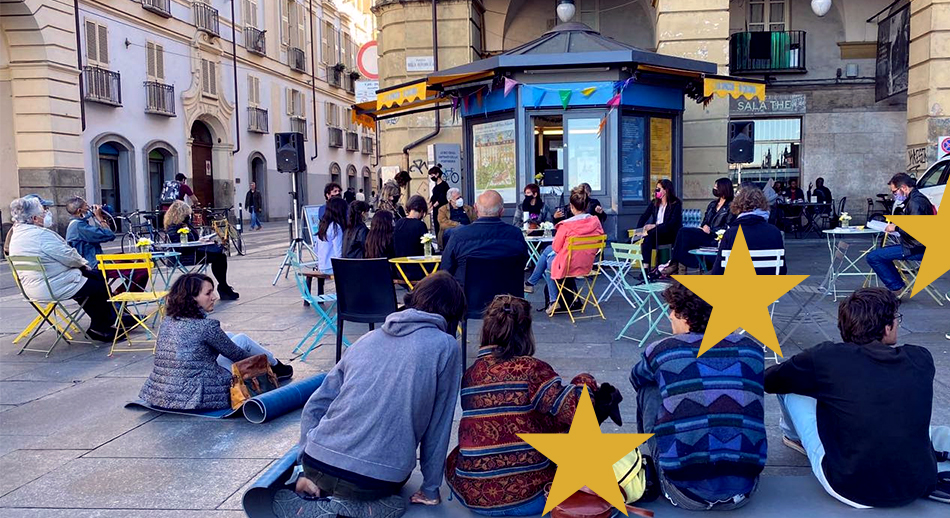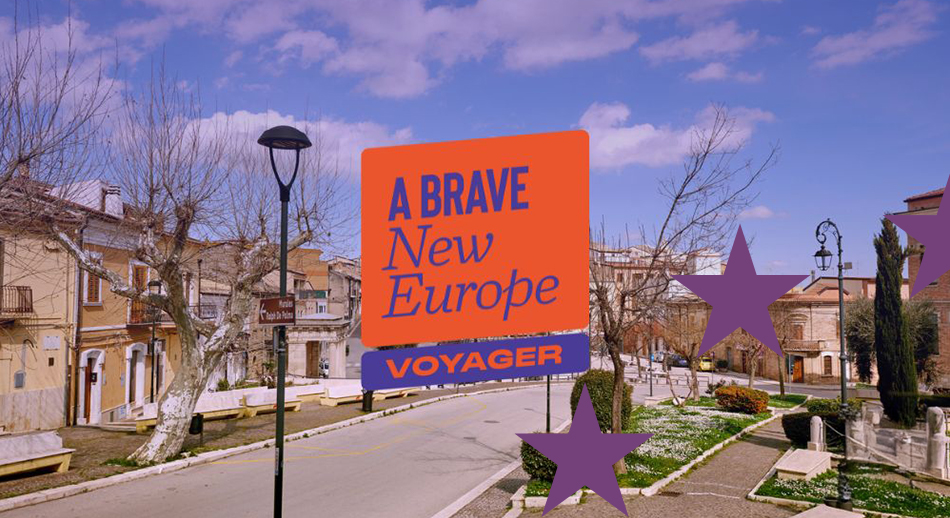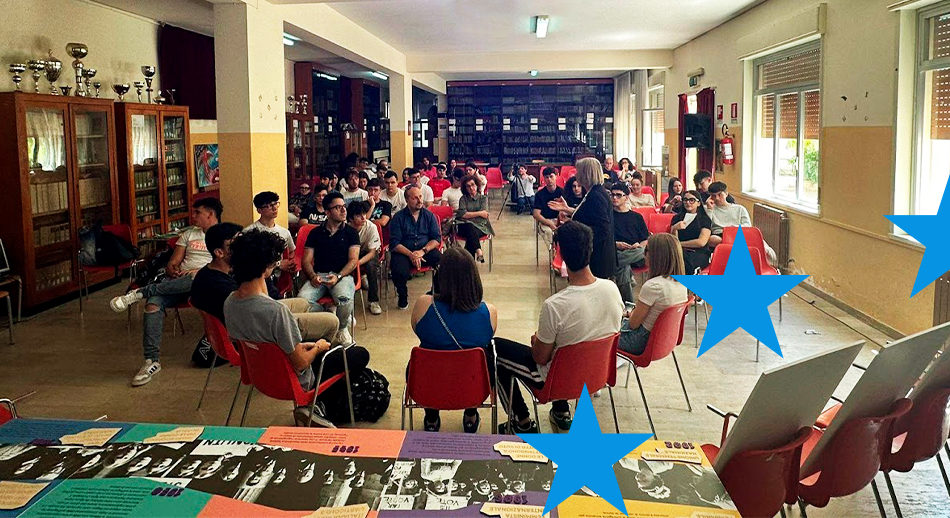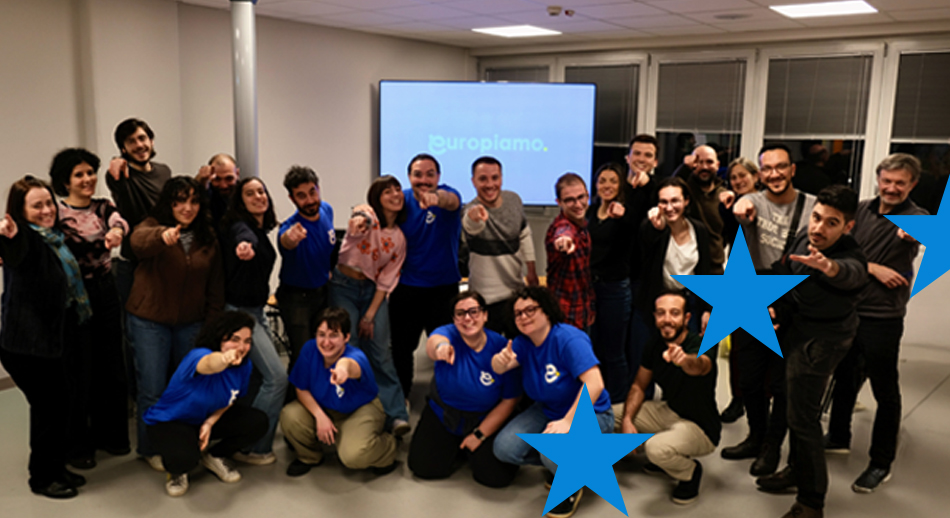We delve deeper into the “history” of Specially Unknown with an interview with Antonio Damasco, Director at the Italian Popular Culture Network and voice-guide of the newly released podcast . Oltre alla bellissima storia degli “sconosciuti speciali”, Antonio ci racconta il suo percorso e la sua esperienza nell’ambito dell’Europrogettazione.
The interview with Antonio Damasco
European is the first Europlanning Guide podcast series, available with one episode per week on all free audio platforms. Each episode is devoted to a place, a city, local, neighborhood dimension and its path to fit into the broader European context starting with common needs and innovative ways to cope with them.
It begins with a trip to Porta Palazzo, in the multi-ethnic heart of Turin. Here, Vitalba meets Antonio Damasco, anthropologist, actor and director of the Italian Popular Culture Network, a social promotion organization that aims to reinvent forms of sociability from the needs of neighborhoods and their inhabitants. These include Community Gateways, urban garrisons of listening and caring for local organisations that carry on the legacy of the European Specially Unknown project, a project funded by the Asylum, Migration and Integration Fund.
We delve deeper into the “history” of Specially Unknown with an interview with Antonio Damasco, Director at the Italian Popular Culture Network and voice-guide of the newly released podcast . Oltre alla bellissima storia degli “sconosciuti speciali”, Antonio ci racconta il suo percorso e la sua esperienza nell’ambito dell’Europrogettazione.
1. Through what path did you approach European funds and europlanning?
Our path to europlanning stems from more than 15 years of work on a specific theme: how to make the telling of people’s “stories” something useful, operational and relationship-generating. This experience was appreciated by those in Europe dealing with related issues. The Dutch BMP Foundation , then the lead partner of our project Specially Unknown , contacted us, and from there this journey began. Thanks to them and the Specially Unknown project, we realized what we had accomplished and its potential. Thanks to the European project, we developed a new awareness and were able to “graft” and develop new ideas.
2. What European fund lines have you had the opportunity to work on and with what results?
Our experience on European projects began with the Specially Unknown project, which was funded by the Asylum, Migration and Integration Fund. . It is an experience we intend to develop: we have recently completed the registration process at the Third Sector Registry and we are now ready to participate in the projects also as project leader. We recently submitted a proposal as part of a EIT Culture and Creativity call And we are gearing up for new opportunities. La methodology of Community Gateways. , a “spin-off” of a European project, is attracting great interest in Italy and Europe today.
3. What are the main difficulties you encounter in submitting projects?
The presentation of the projects is actually the most beautiful part of the whole process. It is a job where you learn a lot from what others do, where others learn from you, where you have the opportunity to exchange experiences and create, together, new ones. It is a mutual “accompaniment to grow.” More complex is the reporting part, where common rules must be followed while reconciling different management systems. And also a different cost structure: in our industry, the cost of a person is much lower in Italy than in other countries.
4. What is most helpful to you when preparing European projects?
For European project preparation, the key factors are information and time. Having time to prepare the project, test the validity of the approach, and assess the capabilities and reliability of the partners provides a huge advantage. It enables the selection of the best partners and the preparation of a well-thought-out and well-prepared proposal, which are the decisive factors in being able to win projects. Having the information in good time (through the Guide or other tools) gives time to prepare and is therefore, along with time, the key-element in preparing a European project.
5. What would you recommend to people who want to submit a project with European funds?
Before presenting any project, it is essential to do an analysis of case studies in Europe, to understand who is working, and how, on the issue you intend to address. Something new needs to be proposed, possibly more effective than what already exists. Be aware that it is possible, often likely, that others are already doing the same thing and better. One needs to find, create and develop affinities with partners most in line with one’s mission. Because embarking on a European project means first and foremost not being alone but embarking on a common path.




